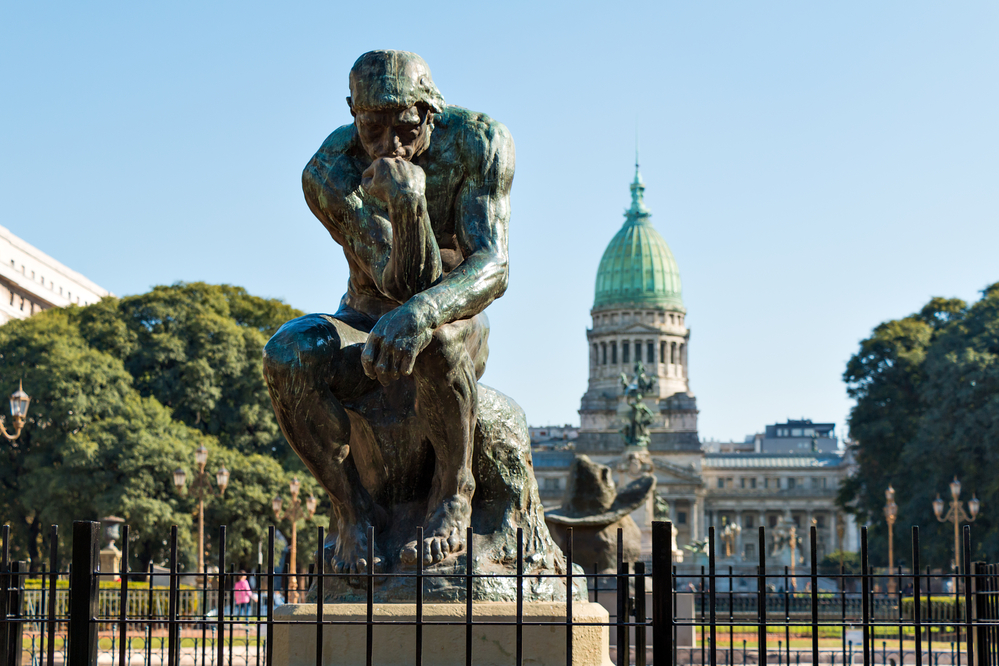President Javier Milei is wasting no time in implementing economic reforms in Argentina. On December 20, only ten days after taking office and outlining the disastrous state of the economy in his inauguration address, Milei issued an emergency ‘mega-decree’ with over 300 measures that significantly deregulate the economy by attacking crony capitalism. Indeed, the executive order focuses on removing obstacles in different areas.
Perhaps the most important law to have been repealed by Milei’s decree was the Rent Law (“Ley de Alquileres”). Passed by an overwhelming majority only a few years ago, the law banned property owners from raising rent more than once a year, which in an economy with over 160% inflation was a recipe for disaster. The law also prevented owners from evicting renters who ceased to pay. In recent years, both measures had caused rent prices to increase and the number of available housing units to fall. Milei’s reforms allow for the signing of contracts without government intervention.
Other laws that were repealed by Milei’s decree include the Industrial Promotion Law (“Ley de Promoción Industrial”), the Commercial Promotion Law (“Ley de Promoción Comercial”) and the Buy Argentine Law (“Ley de Compre Nacional”). These laws provided tax exemptions and subsidies to specific industries located in specific parts of the country, which in turn provided artificial advantages to some business over others for decades.
In his decree, Milei also liberated markets in several agricultural provinces by removing obstacles to free enterprise. For example, regulations like the National Winemaking Policy Law (“Ley de Política Vitivinícola Nacional”) or the Sugar Law (“Ley de Azúcar”) are gone, which means that government-imposed maximum prices have been eliminated for wine producers and that sugar producers will no longer be required to sell part of their products within Argentina. Moreover, foreigners will now be able to buy as much land as they please, following the repeal of the Land Law (“Ley de Tierras”) by the megadecree.

In a blow to the near-monopoly of the state-owned Aerolíneas Argentinas, Milei also implemented an “open skies” policy by repealing minimum prices for flight tickets. Until now, low-cost airlines were forced to charge customers higher than they wanted to so that inefficient Aerolíneas Argentinas would be in a better position to compete with them, but this is no longer possible. The state-owned company, by the way, is set to be privatized as per the decree.
Unions were hit hard by Milei’s reforms as well. For years, they were able to withhold money from all registered employees even if they did not wish to use their services. For example, if an employee wanted to buy private health insurance, their union would still charge them a “fee” only for transferring their money to the company of their choosing. This possibility has been eliminated.
With his decree, Milei also went after a unique feature of Argentine bureaucracy: Vehicle registers. (‘Registros del automotor.’) Until now, there existed over 1,500 private vehicle registration offices, with the government arbitrarily extending new licences to relatives and friends of public officials. Incredibly, these private offices were authorized to collect and keep several taxes and fees each time anyone had to register or transfer a vehicle. The megadecree calls for the creation of an online national register and a series of reformer to eliminate these intermediaries.
Finally, Milei also repealed bizarre laws that regulated, for example, how products had to be displayed on supermarket shelves. Argentines will now also be able to purchase Starlink terminals, an option that was not available to them before the decree as satellite internet was heavily regulated. People will even have the chance to buy over-the-counter drugs outside pharmacies, who until now were the only ones authorized to sell them.
Understandably, all of these decisions have caused an uproar by those whose legal privileges are now revoked. Unions protest because they are no longer allowed to keep money that is not theirs. Pharmacists protest because they are losing the monopoly to sell OTC drugs. Public bank employees protest because if those are privatized, working conditions will be based on market needs.
There is also significant opposition to Milei’s reforms in Congress, as representatives from the opposition have voiced concerns about implementing so many reforms via decree. If both the House and the Senate vote to repeal it within a year, all of the reforms will have been annulled, but it is unclear whether this will be the case as the power balance in Congress is unstable. In any case, one thing is certain: The offensive against crony capitalism in Argentina has begun.
Marcos Falcone is the Project Manager of Fundación Libertad and a regular contributor to Forbes Argentina. His writing has also appeared in The Washington Post, National Review, and Reason, among others. He is based in Buenos Aires, Argentina.


READER COMMENTS
Matthias
Dec 26 2023 at 11:01pm
Thanks for the write-up. I hope they can sustain the reforms.
john hare
Dec 27 2023 at 3:42am
Second that. And hope they can be sustained long enough to shine a light on the policies of other countries. Mainly ours before it gets to a desperation point.
Todd Ramsey
Dec 27 2023 at 9:33am
More, more, more articles on the progress of the reforms in Argentina! Please!
Fahim
Dec 27 2023 at 10:59am
This is one of the most interesting economic stories I can think of as of late and Marcos’s perspectives are always far more illuminating than the gross oversimplifications and lack of economic sophistication you tend to find in the English language press.
A great read!
Richard W Fulmer
Dec 27 2023 at 11:50am
The reforms are great, but process matters. If the changes are seen as illegitimate, people will be far less likely to support them.
Henry
Dec 27 2023 at 12:52pm
I’m not an economist. I have traveled to Argentina four times and love the place. Great scenic vistas, charming people, great cuisine, etc. My friend, an expat, lives there. He thinks that US left/right polarity doesn’t fit well into Argentina. The power that Milei overturned were Peronist, and Peronism translates poorly into the dichotomy that Americans are familiar with. Argentina tried dollarization in 1992, and it failed because no one believed that the government really intended to stick with it. Everyone fudged in the expectation that dollarization would fail, and these predictions were self-fulfilling. There is an unofficial dollar economy in Argentina now. Everywhere I went in Buenos Aires ten months ago was eager to accept dollars. My friend thinks that there are lots of dollars in people’s mattresses. If Milei can convince people that his reforms are durable, then the mattress dollars will come out and boost the economy. Credit drives economic activity. Stable credibility must be Milei’s goal.
Bruce Hoffman
Dec 28 2023 at 1:41pm
‘Free market’ capitalists never give up, do they? Argentina has a DIFFICULT road ahead, and we’re ALL hoping and praying that you succeed.
However, unfettered ‘hot money’ access into South America via Wall Street corporations, and POWERFUL domestic elites looking to structurally alter the economic and political balance of Argentine power dynamic.
Brazil under President Jair Bolsonaro, Bolivia pre-Evo Morales, and American President Donald Trump all championed free market economics, as long as THEIR circle was the ‘fifth column’ benefiting. Now, anacro-capitalists are chomping at the bit to become the next Carlos Slim (Mexico’s telecommunications) lottery winner in Argentina’s economy.
Comments are closed.